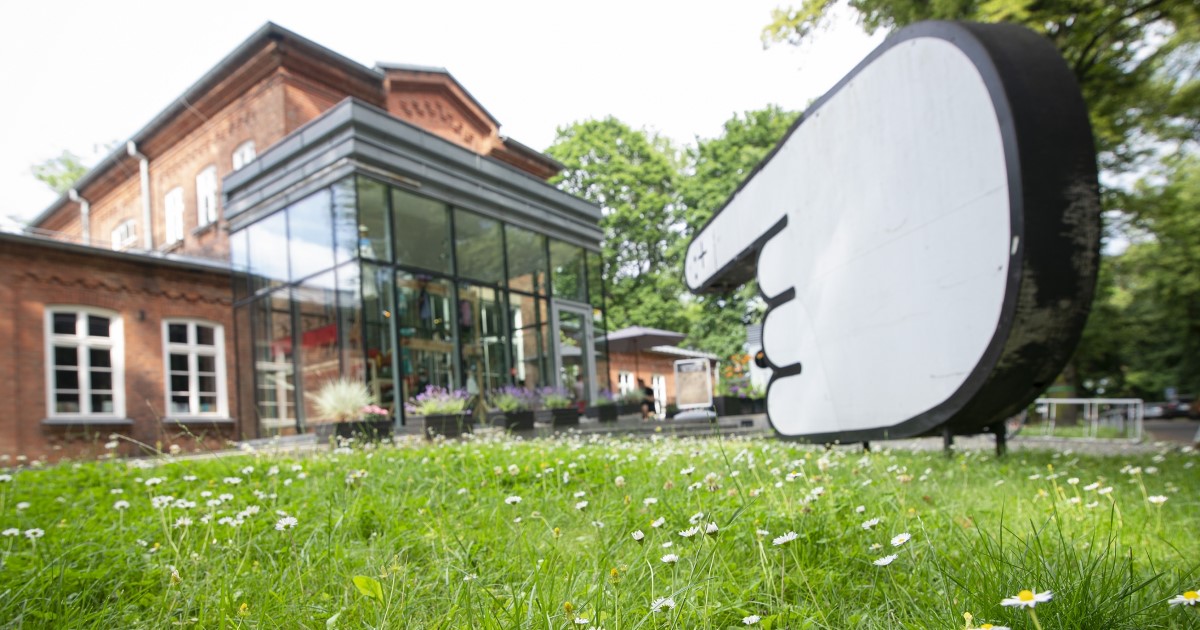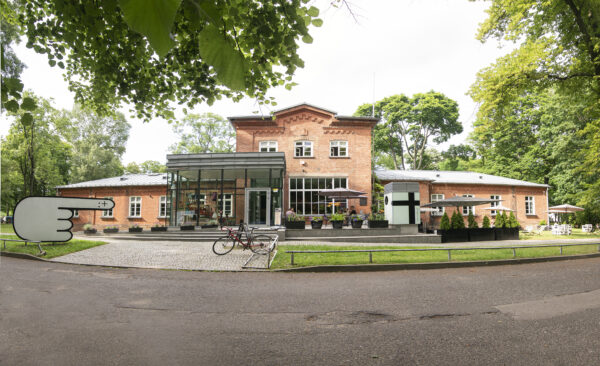ABOUT THE THEATRE INSTITUTE
The Zbigniew Raszewski Theatre Institute was established in 2003. It is located in the centre of Warsaw – at 1 Jazdów Street, in the former 7th Pavilion of the Surgical Ward of the Ujazdowski Hospital, built in 1905.
We document Polish theatrical life acting for the sake of the development of theatre culture – we support public debate about native theatre, broaden research perspectives, and coordinate educational and advocating activities. The Institute houses the only specialist bookstore in Poland entirely dedicated to theatre. Our institution runs its own publishing house, theme websites, and ones addressed to non-Polish speakers – the most comprehensive portal for gathering knowledge about contemporary native theatre life. There is also the online Encyclopedia of the Polish Theatre, a compendium of knowledge and expertise about its history and is also the most voluminous website of this type in the world.
The foundation’s patron is Professor Zbigniew Raszewski – a scholar and man of the theatre, a versatile humanist, a teacher who made his knowledge of theatre an autonomous science, and one of the most outstanding scholars in recent years history of Polish culture.
The Barbara Krasnodębska Theatre Documentation Studio, operating at the Institute since 2003, houses the most extensive theatre archives in Poland. There is a vast collection of press articles, reviews, photos, theatre programs, posters, and documents related to the activities of individual stages across the country at the disposal of all interested parties.
In the :+ Reading Room, you can browse for free the comprehensive collection of the Library, specialising in the collection of Polish and foreign-language literature relevant to theatre and interrelated arts, such as dance, film, music, and circus art.
The Institute is open for meetings, discussions, conferences, workshops and educational activities, film screenings, performances, art installations, exhibitions, and festivals. The finals of competitions run by the institution and celebratory occasions central to the theatre community are also organised here. About 150 various events occur annually in Jazdów, and several hundred thousand viewers participate in the projects carried out by the Institute – at the headquarters and throughout the country, including regions with difficult access to culture.
In recent years, which have brought the most significant social challenges in decades, the Institute has expanded many areas of activity. This was a response to the current needs of the artistic and academic communities that constitute the theatre ecosystem in Poland and Central and Eastern Europe. Around our institution, we gathered a diverse group of experts and representatives of theatrical professional circles, which led us to take effective initiatives – including legislative ones – to protect Polish theatre and its makers against the effects of the COVID-19 pandemic. The result of these activities was, among others, the founding of the Culture Support Fund, under which PLN 400 million was allocated to compensate losses that resulted from COVID-19 for artistic institutions, non-governmental organisations and entrepreneurs managing cultural activities in the realms of theatre, music, or dance. We also made ad hoc efforts to help artists – on the creative, financial, and psychological grounds. We have launched support and residence programs for representatives of theatrical professions from Belarus and Ukraine, affected by the migration and refugee crisis. Activities that integrate and strengthen the theatre communities of Poland, Ukraine, and Belarus remain the priorities of our efforts in the coming months.
The Institute constantly studies the needs and social moods of the groups it operates for. In the last two years, we have undertaken several research initiatives that have allowed us to depict the state of theatre life in the era and after the COVID-19 pandemic. For many months, seven interdisciplinary teams monitored the changes taking place in it. As a result, a series of unique reports were created, analysing the effects of the pandemic on a multilateral basis for the entire theatre ecosystem: from theatre institutions and organisations to their employees, artists, and the audience.
The first director of the Theater Institute was Maciej Nowak. From 2014-to 2018, the institution was managed by Dorota Buchwald. On November 1st, 2019, Elżbieta Wrotnowska-Gmyz was appointed the director.
THE SEAT OF THE INSTITUTE
The Zbigniew Raszewski Theater Institute is located in the former Pavilion of the 7th Surgical Department of the Ujazdowski Hospital in Warsaw, established in 1905 as a surgical department. There was an operating room in the present entrance hall. Pioneering thoracoplasty procedures used in treating pulmonary tuberculosis were performed at the Ujazdowski Hospital. These procedures were accompanied by blood transfusions directly from one patient to another, preceded by a crossmatch for the compatibility of blood groups. Pavilion 7, which houses the Theater Institute, was intended for the officer corps. In the adjacent Pavilion 6, now sheltering the special collections of the Central Medical Library, soldiers were treated. The Warsaw Uprising wrote a dramatic page in the history of the Ujazdowski Hospital. Under gunfire by the Germans, it provided medical aid to insurgents, civilians, and prisoners of war.
After 1945, Pavilion 7, not demolished during the war, was used by the capital’s reconstruction offices, then – the Museum of the History of the Polish Revolutionary Movement (until 1991). At that time, the Pavilion also experienced its theatrical initiation: in the 1979/80 season, Teatr na Rozdrożu had its stage in the present Rehearsal Room. It was here that Jacek Kaczmarski and Przemysław Gintrowski introduced themselves to a broader audience, and it was here that the first performance of their legendary “Walls” song took place. Their enthusiastic reception by the audience prompted the authorities to close the theatre suddenly. From 1991, Pavilion 7 housed the National Center for Research and Documentation of Historical Monuments.
In 2004, the pavilion was handed to the Zbigniew Raszewski Theater Institute. The concept of the reconstruction of Pavilion 7, implemented in 2005-2006 with the Ministry of Culture and National Heritage funds, was developed by Prof. Arch. Stanisław Fiszer, construction design – Arch. Stefan Żółtowski, interior design was designed by Karolina Benoit and Monika Pęcikiewicz.


